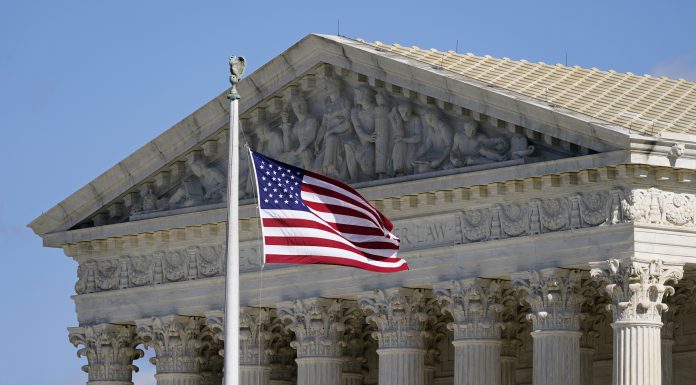(Headline USA) President Donald Trump‘s attempt to exclude illegal aliens from the census, which is used to apportion congressional seats, is headed for a post-Thanksgiving Supreme Court showdown.
The administration’s top lawyers are hoping the justices on a court that includes three Trump appointees will embrace the idea. It’s the latest Trump administration hard-line approach to immigration issues to reach the high court.
Arguments will take place on Monday by telephone because of fears of illness.
A host of novel questions outside of the court’s eventual decision could determine the final product of the nation’s once-a-decade head count, including whether the incoming Biden administration would do anything to try to reverse decisions made under Trump.
Federal courts in California, Maryland and New York have ruled that Trump’s plan violates federal law or the Constitution, which provides that “representatives shall be apportioned among the several States according to their respective numbers, counting the whole number of persons in each State.”
A fourth court, in Washington, D.C., held this past week that a similar challenge to the administration plan was premature, an argument that also has been made to the high court.
“What Trump wants to do would be a radical break from that. The losers wouldn’t be individual people. It would be entire states and communities that would lose representation when undocumented members of those communities get cut out of the count used to apportion the House,” said Dale Ho, the American Civil Liberties Union lawyer who will argue on behalf of immigration advocates and civil rights groups in the Supreme Court case.
The administration argues that both the Constitution and federal law allow the president to exclude “illegal aliens” from the apportionment count.
“As history, precedent, and structure indicate, the President need not treat all illegal aliens as ‘inhabitants’ of the States and thereby allow their defiance of federal law to distort the allocation of the people’s Representatives,” acting Solicitor General Jeffrey Wall wrote.
By the administration’s estimate, California could lose two to three House seats if people living in the country illegally were excluded based on what the administration said are more than 2 million such California residents.
But Ho noted that a change in apportionment of House seats can turn on much smaller numbers.
The Democratic-controlled House has weighed in to argue that Trump’s plan would result in an unfair distribution of seats for partisan political goals, the latest attempt “to manipulate the census in novel and troubling ways.”
The House cast the president’s plan as part of a larger effort that included an attempt blocked by the Supreme Court to add a citizenship question to the census for the first time in 70 years.
For the order to be carried out, the data processing of the apportionment numbers will have to take place while Trump is still in office, but an announcement this month that anomalies have been found in the data jeopardizes the Census Bureau’s ability to hand in the numbers to the president by a Dec. 31 deadline.
Trump, in turn, is supposed to transmit the numbers to Congress by Jan. 10.
But if problems with the data force a delay of even three weeks, the Census Bureau would be turning in the numbers to a new president. President-elect Joe Biden takes office on Jan. 20.
Adapted from reporting by the Associated Press.

